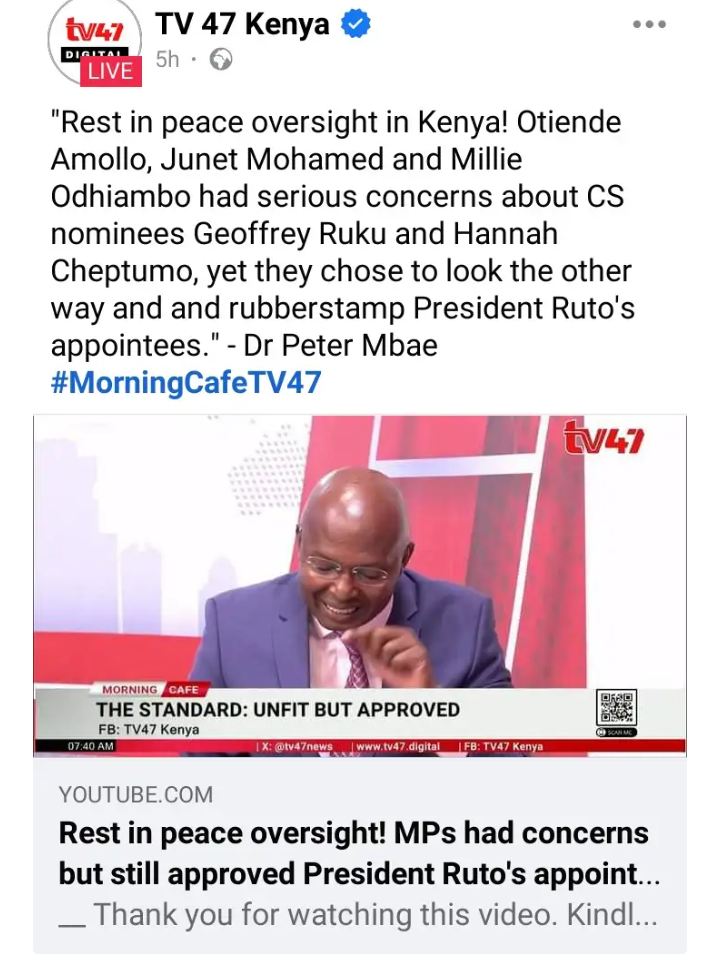Dr. Peter Mbae, a well-known political analyst and commentator, has voiced deep concern over what he sees as a growing failure of oversight in Kenya’s leadership.
He was reacting to the recent approval of Cabinet Secretary nominees Geoffrey Ruku and Hannah Cheptumo. According to him, this decision marked a worrying trend where Parliament appears to be drifting away from its constitutional duty of holding the executive accountable.
What troubles Dr. Mbae most is that several lawmakers who initially raised serious concerns about the competence and qualifications of the two nominees later turned around and approved their appointments without further resistance.
He pointed out that respected members of Parliament such as Otiende Amollo, Junet Mohamed, and Millie Odhiambo had earlier questioned whether Ruku and Cheptumo were fit for such high-level government roles.

However, when it came time to take a stand, they quietly allowed the appointments to proceed. This shift, according to Dr. Mbae, shows that Parliament may be losing its independence and simply following the executive’s lead without proper scrutiny.
Many Kenyans have been left wondering what happened behind the scenes. Dr. Mbae questioned if political deals and party loyalty had played a bigger role in the approvals than actual qualifications or the public interest. He warned that this kind of behavior sends the wrong message to the country, especially when people are already frustrated with how appointments in government are being handled.
It adds to the feeling that the needs of ordinary citizens are being ignored in favor of political games.The approval of the two nominees has stirred public debate, with many asking whether Parliament still serves the people or if it has become just a rubberstamp for decisions made elsewhere.
Dr. Mbae’s statement reflects the frustration of many who believe that Kenya’s oversight institutions are slowly being weakened.
If Parliament cannot firmly question and hold government officials accountable, then there’s little hope for transparency or good governance.
This isn’t just about two individuals being appointed. It’s about a pattern that may continue unless something changes. When leaders ignore merit and allow political convenience to rule, it’s the citizens who suffer in the end.
Dr. Mbae’s concerns are timely and important, especially as more people begin to demand higher standards from those in power.
His comments serve as a reminder that integrity, accountability, and independent thinking in public office should never be sacrificed, no matter the political pressure.


